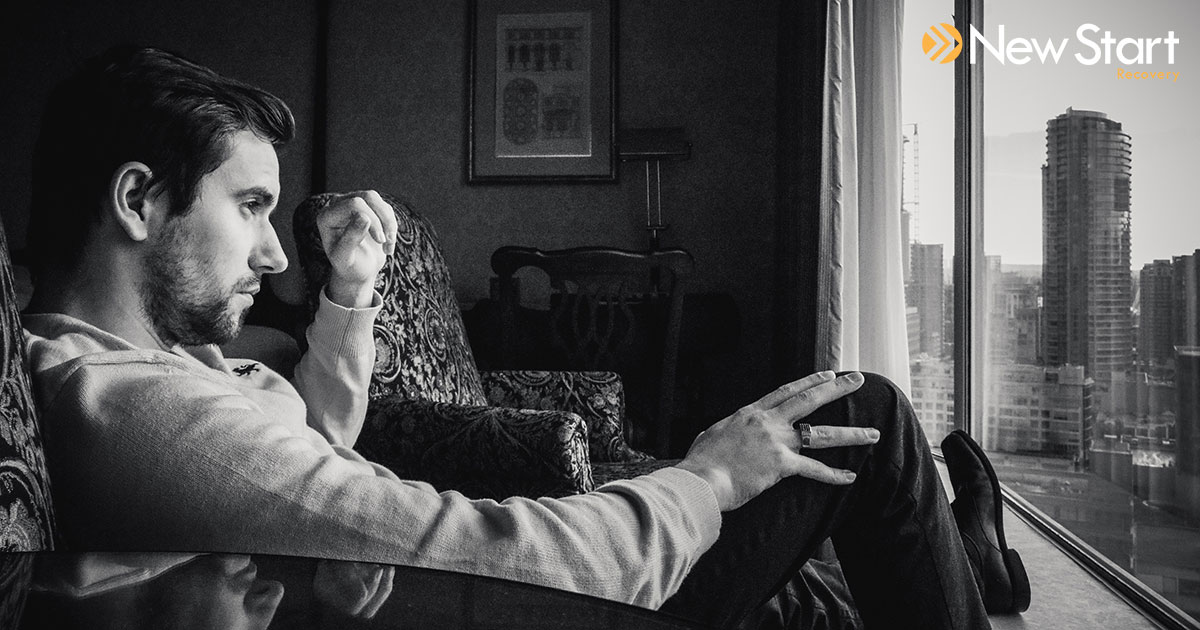First thing’s first: let’s get rid of the notion of being “fixed.” There is no instant, easy, or permanent fix in addiction recovery. It just doesn’t work that way.

Recovery is not a cure for addiction. There is no cure for addiction. Recovery is an active treatment plan in which an addict not only gives up substances, but also works daily to live healthily, intentionally, and in control. Detox and residential treatment programs are meant to help a person get clean and learn how to function (again) without drugs or alcohol. While there’s a lot that goes into those early levels of care, a treatment plan that lacks aftercare in recovery essentially welcomes relapse.
Recovery is Not One and Done
As we accept that addiction is a chronic disease, why would we expect treatment to be a one time fix?
Understanding might come a bit easier if we flip the script. A person who struggles with diabetes doesn’t go to the doctor once, get a shot, and assume they’re cured. They’re treated with a comprehensive treatment plan for their chronic illness. Addiction — though very different in its respective facets — is also chronic illness that requires a comprehensive treatment plan.
Most recovering addicts will benefit from a holistic experience with various different phases. Typically, a comprehensive plan will include detox, residential treatment, and outpatient (with the option of sober living if needed). Detox will get a person clean and sober, but the majority of recovery work occurs in the later levels of care. That work is essentially what prepares you for life after rehab, packed tight with relapse prevention tools.
Why Does Relapse Happen?
Relapse happens because we’re human. Being human, we’re subject to human missteps. We’re also able to have emotional responses, memories, and sentiments, which are all kindling for triggers. At one point, substances had control over a recovered addict’s mind to the point of actually altering brain chemistry. That doesn’t just disappear now that the addict has detoxed all substances from their body. This is exactly why a successful treatment plan needs to address aftercare in recovery.
Relapse is virtually assured if there’s no aftercare in recovery.
What Does Aftercare Mean?
Simply put, aftercare is the work you put into your recovery after graduating from a treatment program. We’ve all heard the saying “It only works if you work it.” Well, “working it” is aftercare.
While attending meetings is important and incredibly beneficial to most recovered addicts, aftercare in recovery means more than just going to a meeting and finding a sponsor. There has been a plague of programs who push clients out as graduates without any sort of aftercare plan beyond a pamphlet with a list of nearby meetings. These are human lives that are deeply vulnerable as newly sober. Without a solid and individualized aftercare plan, a facility is essentially leaving that person’s door open for relapse.
You’re Not Alone: The Responsibility of the Treatment Facility
Aftercare is part of a comprehensive treatment plant. So, a good treatment facility has a responsibility to not only address aftercare but also provide legitimate features, including tools, continuing communication, and housing.
What Should a Treatment Facility Provide for Aftercare in Recovery?
-
Relapse Prevention Plan
Whether or not the client is going to continue with the same treatment facility into IOP, that facility should sit down with the client to set up a relapse prevention plan. Outside the facility, triggers are inevitable. A recovered addict needs to have the tools and foundation to be able to either avoid or confront those triggers. This is a huge part of a relapse prevention plan. That plan needs to be individualized for each unique person so that they’re able to continuously utilize it in their own life with their own circumstances.
WRAP Therapy: WRAP is an approach to mental health that is especially beneficial to those in recovery. At an umbrella level, it helps people manage self-destructive behaviors and feel more in control of their own life. It provides key tools, including a personalized wellness toolbox, crisis planning, and daily sober maintenance. Each tool is infinitely beneficial for aftercare in recovery.
-
Housing / Continuing Treatment
For most recovering addicts, the best next step after residential treatment is IOP. And IOP is most successful in conjunction with sober living. If the facility a client completes detox and/or residential treatment at does not provide IOP and a sober living environment, the staff should put legitimate effort into finding those programs for the client before they leave.
-
Active Alumni Program
An active alumni program is a sign of a successful treatment facility, as it shows that the graduated sober members are still plugged in and working the program. An alumni program provides fellowship, social connection, and remote coaching for those who have graduated from a treatment program.
-
Discussing Overdose
Discussing overdose is a controversial topic in the recovery world. Some argue that discussing overdose is triggering for patients. However, many support the discussion, stating that the controlled environment of a treatment facility is the best environment for providing this type of (potentially triggering) information. The awareness that overdose happens, knowledge of overdose signs and symptoms, and even possession of overdose-reversing medications (like Narcan) may not prevent relapse but they can save a person’s life during a relapse.
Ways You Can Help in Your Own Aftercare
An addiction treatment facility does have certain obligations to set their clients up for a successful long term recovery, but it’s ultimately your life. If you want to live a clean and sober life, you need to take the reins. Holding yourself accountable is a huge part of initial treatment as well as aftercare in recovery.
Take One Day at a Time
It can be daunting to look ahead at future years and think, “I need to stay sober for my whole life.” That idea becomes much more manageable when you take one day at a time. Wake up in the morning and think, “I can stay sober for today.” Easier, right? Do that every day and you’re managing that lifetime sobriety!
Find a Fellowship
A solid support network is critical in long term recovery. A fellowship provides a safe environment of people who can sympathize with your journey because they’ve been there too. Finding a fellowship that can provide positive reinforcement and support in times of crisis is key for aftercare in recovery.

If you or a loved one are seeking help for a substance abuse problem, our addiction counselors are available 24/7 by phone: 855-737-7363

